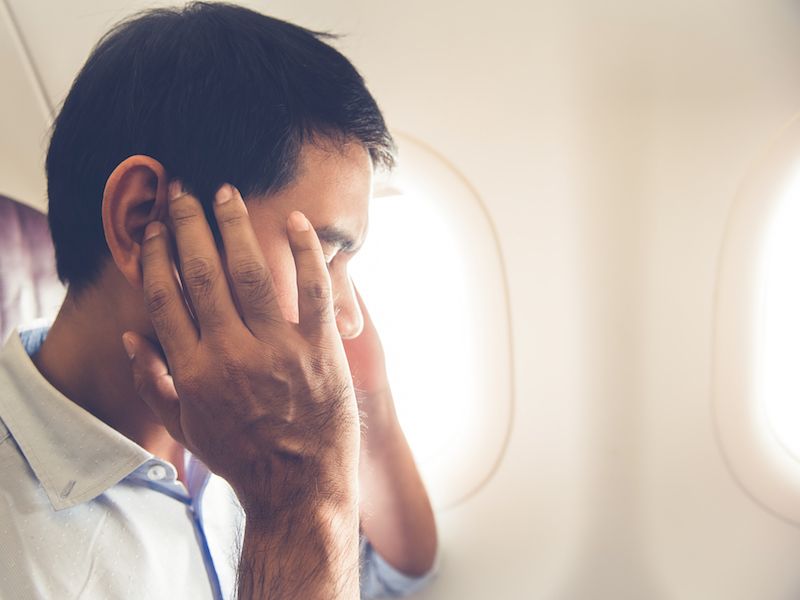
With tinnitus, it’s common to have good and bad days but why? More than 45 million Americans suffer from ringing in their ears due to a condition called tinnitus, according to the American Tinnitus Association, and comes along with hearing loss by about 90 percent of them.
But what’s difficult to comprehend is why it’s almost non-existent on some days and on others the ringing is so invasive. It is not completely clear why this happens, but some ordinary triggers may clarify it.
What Is Tinnitus?
The following phantom noises are heard by people who suffer from tinnitus:
- Hissing
- Clicking
- Ringing
- Buzzing
- Roaring
One of the things that makes tinnitus so disturbing is that you hear it but no one else can. The noise can vary in pitch and volume, too. It might be gone one day and the next it’s a roar.
Exactly What is The Cause of Tinnitus?
The most prevalent cause is a change in a person’s hearing. The cause of these changes could be:
- Noise trauma
- Aging
- Ear bone changes
- Earwax build up
There are other potential causes, also, such as:
- TMJ problems
- High blood pressure
- Meniere’s disease
- A problem with the carotid artery or jugular vein
- Tumor in the neck or head
- Head injury
- Acoustic neuroma
- Atherosclerosis
Sometimes there is no apparent explanation for tinnitus.
If your tinnitus has just started, see your doctor and learn what is going on with your ears. The issue might be something treatable or it might be a symptom of a life-threatening condition like high blood pressure or heart disease. It might also be a side effect of a new medication.
For some reason the ringing gets worse on some days.
It’s somewhat of a medical mystery as to why certain days are worse than others for those with tinnitus. And there could be more than one reason depending on the person. However, there might be some common triggers.
Loud Events
Your tinnitus can be aggravated by loud events such as concerts, club music, and fireworks. If you expect to be subjected to loud noise, your best choice is to use hearing protection. They make earplugs, for instance, that will allow you to enjoy music at a live performance but reduce the effect it has on your hearing.
Another thing you can do is to put some distance between you and the source of the noise. For example, don’t stand next to the speakers when attending a live performance or up front at a fireworks display. With this and hearing protection, the damage to your ears will be reduced.
Loud Noises at Home
Stuff at home can be equally as harmful as a loud concert. For example, mowing the lawn is enough to trigger tinnitus. Think about other things you do at home that may be an issue:
- Woodworking – The tools you use are enough to cause a problem
- Wearing headphones – The purpose of headphones is to increase the volume of your audio which could be aggravating your tinnitus so it might be time to lose those earbuds.
- Laundry – For example, if you fold clothes while the washer is running.
If there are things you can’t or aren’t willing to avoid such as woodworking, wear hearing protection.
Noises at Work
Loud noises at work have the same impact as a concert or the lawnmower. If you work near machinery or in construction it’s particularly crucial to use hearing protection. Your employer will probably supply ear protection if you inform them of your worries. Spend your off time letting your ears rest, too.
Changes in Air Pressure
When most people go on a plane they experience ear popping. An increase in tinnitus can happen because of the noise of the plane engine and the change in pressure. Think about hearing protection if you are traveling and bring some gum to neutralize the air pressure.
Changes in air pressure occur everywhere not only on a plane. Taking the right medication to alleviate sinus pressure is also helpful.
Medication
Speaking of medication, that might also be the problem. Certain drugs are ototoxic, meaning they affect the ears. Some common drugs on the list include:
- Over-the-counter pain relievers
- Diuretics
- Antibiotics
If you’re experiencing an intensifying of your tinnitus after you begin taking a new medication, seek advice from your doctor. It might be feasible to change to something else.
For some people tinnitus is not just annoying it’s disabling. The first step is to figure out why you have it and then consider ways to control it from day to day.
